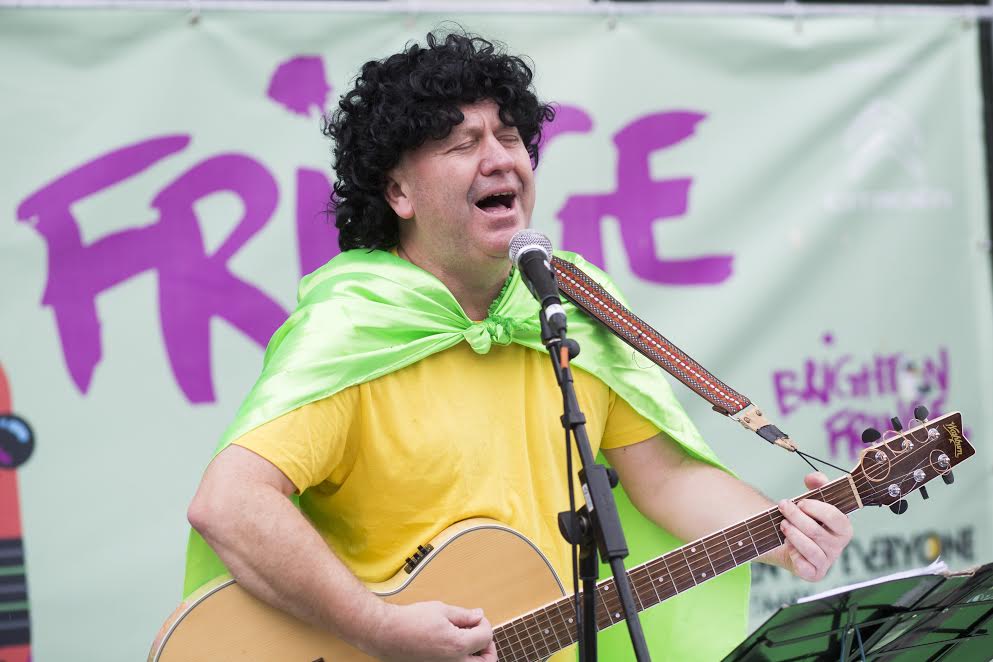The arts and the cultural heart of Brighton and Hove is in jeopardy as the coronavirus pandemic puts thousands of jobs at risk, according to an official report.
The pandemic has wiped out hundreds of shows and several festivals threatening to cripple the finances of a sector that usually generates an estimated £1.5 billion a year.
Many of those working in the creative and cultural sector are freelance or self-employed and a senior council official, Donna Chisholm, said: “Those people are hurting quite badly at the moment. There is a real sense that the value that they bring to society and the economy is not fully recognised.”
Ms Chisholm is due to present proposals to councillors next week that have already won the backing of some of Brighton and Hove City Council’s most senior members.
She will set out the Brighton and Hove Recovery Plan for Culture, aimed at helping to revive a sector that employed about 16,000 people before the pandemic.
The council’s assistant director for culture, tourism, and sport told the Policy and Resources (Recovery) Sub-Committee on Wednesday (6 January) that half of Brighton and Hove’s creative and cultural sector could be lost.
She will call on members of the council’s Tourism, Equalities, Communities and Culture Committee to give the recovery plan their backing too.
Among the ideas being explored is a “creative worker income guarantee” – and she said: “We are looking at this as a research initiative because it is a complex project and potentially very expensive.”
Conservative councillor Joe Miller had concerns about the proposal because it was, he said, like the “universal basic income” idea which his party opposes.
Councillor Miller said: “I wonder how much it is likely to cost and who is likely to pay for it.
“I appreciate I am in the minority on the council in my view. My concern is while people can use a group to push a policy they believe in, under the guise of covid, that is a distraction to what we need to be doing which is boosting the cultural sector so that we don’t need an income guarantee.”
Councillor Miller said on Wednesday that he wanted to see “tangible” action that would keep people in jobs.
Labour opposition leader Nancy Platts said that the cultural recovery plan gave her a “sense of hope” that events would resume – and that planning for future events gave people something to look forward to.
It has been estimated that cancelling the Brighton Marathon, Pride and the Brighton Festival and Fringe, as well as other events last year, cost Brighton and Hove at least £100 million in lost revenues.

Councillor Platts was enthusiastic about the idea of a creative worker income guarantee and said: “I know from meeting people in this sector that many of them are very reliant on seasonal work and have to plan a long way ahead and make a huge investment in some circumstances to run their events. I think this is something people will like the sound of.”
Green councillor Hannah Clare said that the creative recovery project was forward-thinking and had had a great deal of input from many organisations.
Councillor Clare said: “I know many venues across the city and many people in the sector worked very hard over the summer, within the regulations, to try to keep the flame of culture going for Brighton and Hove.
“I went to the Brighton Open Air Theatre, and many others experienced the Warren on the seafront, and it shows how creatively the sector has responded to the challenges of the last year despite the huge barriers in place.”
The council’s Tourism, Equalities, Communities and Culture Committee is due to meet on Thursday (14 January). The virtual meeting is scheduled to start at 4pm and be webcast on the council website.










I suggest that rather than spending other peoples money The Labour Group and The Greens learn how to create income.In the not too distant future The Council will have many of the Retail and Commercial properties in their portfolio be returned ans will be a Real good source of income if turned into residential.
It would be great to see the Artists Quarter on the seafront invested in to turn it into somewhere people can go to enjoy the arts and become a tourist attraction generating income.